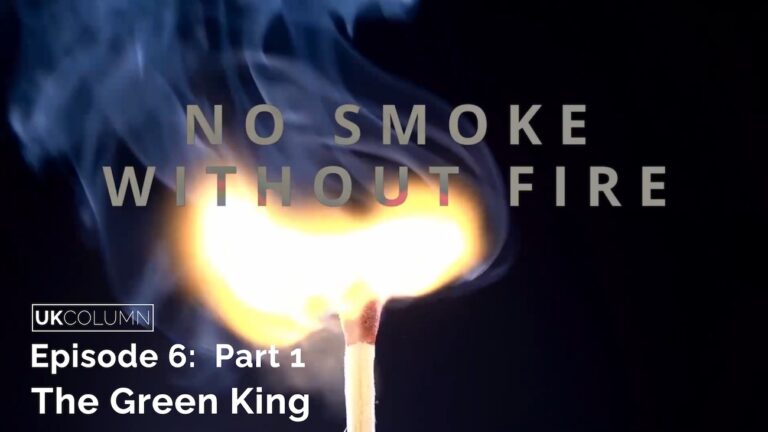In the latest There's no smoke without fire-Qualified Greene King, Part 1—Brian Gerrish and Debi Evans take a relaxed yet insightful look at the character of King Charles and his involvement in the story of sustainable development. Is he simply a mild-mannered and slightly eccentric new icon, as many think, or is he the key figure behind Klaus Schwab and the World Economic Forum? Who exactly is King Charles and what is the connection between monarchy and autocratic sustainable development? A brave new world What initiatives are we all expected to embrace? How well do people actually know their new king and his ambitions? Questions abound.
Charles III is the monarch of the United Kingdom and head of the Commonwealth, ruling as King over many of the Commonwealth's member states. As the eldest son and heir to the throne, Charles III ascended to the throne immediately after the death of his mother, Queen Elizabeth II. Charles III is the oldest person to have been crowned in the United Kingdom.
Born on November 14, 1948 at Buckingham Palace. Circumcised A famous London physician, MohelCharles emigrated to Wales in December 1948, boarding first at Cheam School and then Gordonstoun, the latter of which he was known to dislike. He then completed his schooling in Australia. He graduated from Cambridge University in 1969 with a degree in history, and served in the Royal Navy and Royal Air Force from 1971 to 1976. On 26 July 1958, Charles was created Prince of Wales, but only took up the title on 1 July 1969, at Caernarfon Castle, when he was 20 years old. He was made a member of the House of Lords in 1970.
His late father, Duke of Edinburgh A passionate and enthusiastic environmentalist and founder of the World Wildlife Fund and the Duke of Edinburgh Award, Prince Philip was determined to strengthen the fusion of environmentalism and faith that had already begun to emerge in the 1960s. In 1965, together with the then Bishop of Windsor, Prince Philip St George's House, Windsor To provide a residential center where laity and clergy can meet and discuss matters of common interest.
In celebration of our 25th anniversary World Wildlife FundIn 1940, a conference of the world's five largest religions was held in Assisi. Discussions included the question of what responsibility believers felt towards the natural environment as a “sacred entity.” The conference agreed that a charitable organization should be established to assist and guide religions in contributing to “nature conservation” according to their own beliefs and traditions.
The Duke of Edinburgh argued:
Conservation is the only issue that is truly international, inter-sectarian, inter-ideological and inter-racial.
In 1995, An alliance of religion and environmental protection ARC was founded in partnership with Citigroup and with the Duke of Edinburgh as its patron. In 2015, the United Nations asked ARC to consult with religions on the development of the 17 Sustainable Development Goals, a new touchstone for environmentalism. The landmark Zug Conference in Switzerland in 2017 agreed that a new global organization was needed to advance “faith-based investing”.
The ARC closed on June 27, 2019, one day after its replacement facility opened. Faith Investsupports faith-based organisations to invest in areas that are aligned with their beliefs and values. Faithinvest was established with generous funding from a number of partner organisations, including:
- United Nations Environment Programme,
- the World Bank's Climate Investment Funds;
- Religious Peace Association,
- Ecoseek,
- Vatican,
- WWF International, and many others.
The environmental movement is alive and well in all major religions.
Faith is big business, and religious organizations hold billions of dollars in trust that are invested in global stock markets. Religious organizations are natural drivers of values-based investing that can benefit the environment and support the objectives of sustainability goals.
But who Sustainable Goals Initiativewho established “sustainability accounting” and who said this?
It is estimated that nature's contribution to the global economy is worth more than $125 trillion per year – more than the world's annual GDP.
Let's ask a few more questions: Who designed Britain's Experimental New Town? Who is the father of organic farming? Who popularized the concept of man-made climate change? Who professes to support “alternative medicine” but supports pharmaceutical companies? The answer, of course, is none other than Prince Charles, the current King.
As a defender of the faith who once professed to be a champion of the faith, and as patron of over 800 charities and organizations, Charles has accomplished much in the world of religious charity. And as the longest-awaited heir to the throne in British history, what was Prince Charles building for the future reign he now begins? Join Brian Gerrish and Debi Evans as we lift up some of the royal stones and peer beneath them.
The second part of this discussion is here.
Related UK columns:
Welby's Anglican Church 2021: Trillions of pounds for Gaia's greed, but a pittance for the parish's poor
Church of England: Ethical investments in pornography, weapons and embryonic stem cells (2023)


